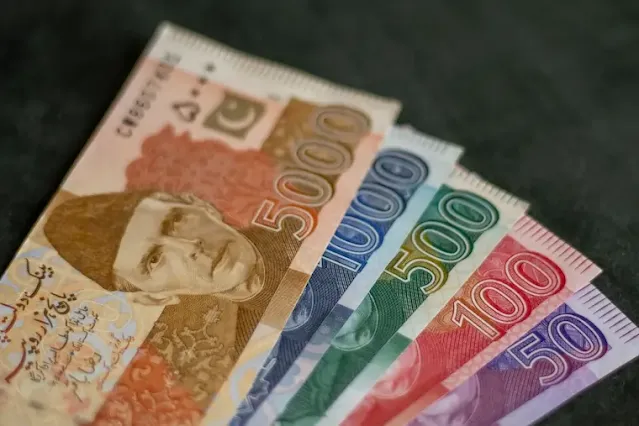Government Set to Impose Higher Withholding Tax on Cash Withdrawals by Non-Filers Starting July 2025
In a move aimed at broadening the tax base and promoting financial transparency, the Government of Pakistan has announced that it will double the withholding tax on large cash withdrawals for individuals who are not registered taxpayers, commonly known as “non-filers.” The new policy will come into effect from July 1, 2025, and is being viewed as a significant effort to increase tax compliance in the country.
What the New Policy Entails
According to official sources, any person not listed on the Federal Board of Revenue's Active Taxpayer List (ATL) will now be subject to a 0.6% withholding tax on daily cash withdrawals exceeding Rs. 50,000. Banks will automatically deduct this tax from all cash withdrawals, including credit card cash advances, teller counter withdrawals, and ATM transactions. This measure revives a previously imposed tax that had been suspended in prior years due to economic pressures and business community concerns. However, in light of Pakistan’s ongoing fiscal challenges and the need to increase the government’s revenue collection, the reintroduction of this tax is being positioned as a necessary step.
Objective: Bringing More Individuals into the Tax Net
The primary goal of this initiative is to encourage tax registration among individuals who earn substantial income but remain outside the formal tax system. The government hopes to encourage more people to file their income tax returns and enter the formal economy by imposing a financial disincentive on large or frequent cash withdrawals. The policy is also intended to discourage a cash-based economy by incentivizing the use of digital banking channels. Financial experts believe that reducing cash transactions will not only improve transparency but also help curb illicit financial activities and undocumented earnings.
Who is Affected?
Individuals and organizations that are not listed as tax filers are the target of this new rule. If someone withdraws over Rs. 50,000 in cash on any given day and is not on the ATL, they will be liable to pay 0.6% of the withdrawn amount as tax.
However, filers—those who have submitted their income tax returns—are completely exempt from this withholding tax. In a similar vein, this tax will not apply to withdrawals made by diplomatic missions, foreign embassies, or government agencies under existing exemptions. Can the tax be changed? Yes. The withholding tax can be deducted from an individual's taxable income at any time. This means that if a non-filer later becomes a filer and submits their tax returns, the amount deducted as withholding tax can be adjusted or refunded based on their total tax obligation.
Industry and Public Reactions
There has been a mixed response to the announcement. On one hand, economists and tax advocates have praised the policy, calling it a progressive step toward financial accountability and an expanded tax net. On the other hand, business associations and SME groups have expressed concerns about the potential negative impact on cash-reliant individuals, particularly small traders and rural communities.
Some critics argue that instead of penalizing non-filers, the government should make tax registration easier and provide more incentives for voluntary compliance. They warn that high cash transaction taxes might push individuals toward informal financial systems, thus defeating the very purpose of the policy.
Possible Economic Implications
The reintroduction and doubling of this tax could have broad financial effects:
Reduction in cash transactions: More individuals may begin to shift towards online payments and digital wallets.
Strain on small businesses: Traders and shopkeepers who depend on daily cash flows might find themselves paying more, leading to increased operational costs.
Increased government revenue: If successful, the move will help the FBR raise billions in tax revenues and reduce reliance on indirect taxation.
Conclusion
The Pakistani government has taken a bold step in its ongoing fight against tax evasion by imposing a higher withholding tax on cash withdrawals by non-filers. Even though some people might not like the policy, it is a big step toward making the economy more official and making people more responsible with their money. For non-filers, the message is clear: either join the tax system or face increasing financial consequences for remaining outside it. Whether this move results in long-term compliance or short-term evasion remains to be seen—but one thing is certain: the tax net is tightening.



Post a Comment
0Comments